Life in La Habana
Waves wash against the infamous Malecón (seaside walk) that leads along most of the city. Fishermen line its wall, tourists and locals alike taking a stroll, children playing in the ocean, musicians playing a tune, hoping for a tip, the ubiquitous bottle of rum being shared by a group of friends day and night alike (and since Coke is almost the same price as rum, why waste money on Coke). As the day draws to an end more and more couples fill the Malecón holding hands, kissing or just looking out over the ocean.
Time has a different value here, as most the day seems to be spent waiting: waiting for the elusive bus that sometimes comes, sometimes not and most of the time is full (but there is always space for a few more people), waiting in line for the few goods that are on sale for Cuban pesos, waiting for other people who tend to show up with random delays or waiting for the monthly food ration to arrive which is granted to all Cubans by the government. Moreover it seems that most the jobs involve waiting: police officers on every corner waiting all day (which gives a weird feeling of “Big Brother” watching), door men waiting, street hustlers waiting for their prey, salesmen waiting in their empty stores for customers to enter. And do the waiting goes on.
Since public transportation is at best spotty, distances not too far and almost no one owns a car, there is a lot of life in the streets: people walking, talking, buying, queuing and laughing. The city almost bursts with vibrancy and the difficult economic situation does not seem to have diminished passion for life.
And life is difficult indeed for the average Cuban that does not have relatives abroad sending monthly checks. Although everybody has a job (or those that want one) they only pay 15-30 USD per month and even with the free monthly food ration it is almost impossible to get by. So the people are very creating in finding income on the side: renting out rooms to foreigners illegally (doing so legally requires large monthly lax payments), talking home some company property to sell on the side and paying each other off to get by with it. It seems that the Cubans are very cognizant of the benefits they receive from the government: free health care, free education (from first grade to university), free housing, free monthly food rations, free child care and almost free public transportation. This however does not keep them from complaining about the things they do not have. At the same time there is dissatisfaction about the poverty and the difficulty of getting by. But life goes on. Cubans seem to have mastered making something of nothing: for example inventing tools and parts to repair their 50 year old cars that have to keep driving. Although they like to complain a lot, the Cubans have maintained their happiness and lightness of being.
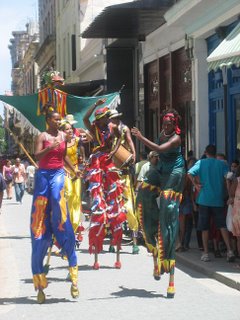
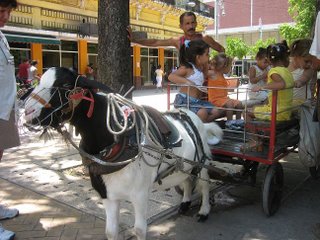
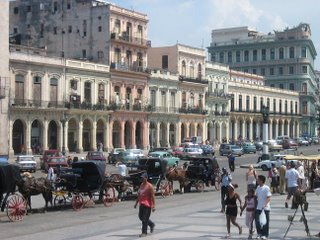
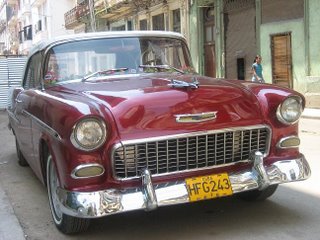
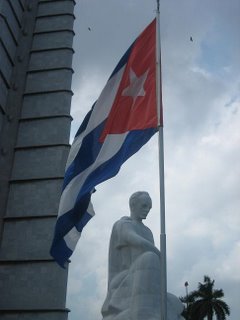
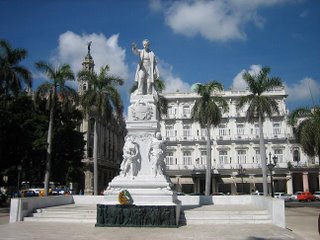



<< Home